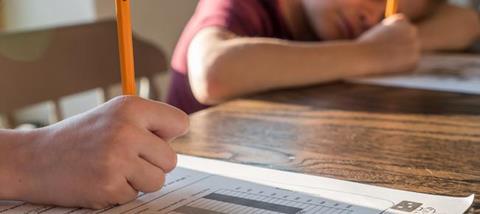
Routine
Keep a routine, day in, day out. If, for example, at 9am my children are sitting at the kitchen table doing phonics, the following day at 9am, let’s make sure they’re at the kitchen table doing phonics. And let’s keeping it Monday to Friday. Let’s keep Saturday and Sunday as a weekend.
Young people don't like rules, but they crave for rules. They need to know where boundaries are, that's when they feel safe. That needs to be created at home, which will also help prepare them for when they go back to school.
If a young person is on the computer all day, playing and not participating in any routine, as if it's just like the summer holidays, they're going to find it a lot harder to go back into school than a student who has been either dipping in and out of work, or having a structured day.
Reflect
Create an opportunity to reflect on what works and doesn't work well. I know routine is really tough, because there'll be bad days. But this is what it's like in school too – you'll have a bad lesson and then two days later, you’ll have that lesson again and it’s much better.
It's about picking yourself up, brushing yourself down and reflecting on what didn't go well and how we can make it better. I fully appreciate that teachers have training around this and an understanding of how to do that. I’m a teacher, but I haven't got clue how to teach a three-year-old and a four-year-old!
Refocus
We want to make sure young people realise education isn't all about academia. Parents might be struggling to help their children with maths, English, German etc, but we've also got this opportunity to exercise each day.
Build exercise into the day and get outside if you can. If you live by the coast try and get near the sea, because blue is the colour that seems best in terms of mental health and depression. The second-best colour is green, so if you’re not near the sea, try and find a green space.
My next-door neighbours have three teenage girls and they do circuit training together every morning at 9am.
Build creativity into your day and ensure there are lots of breaks – even in secondary schools, most lessons are only have about 45 to 50 minutes worth of content, once children have got to the lesson, unpacked and packed back up again. So, don’t make work sessions too long.











































